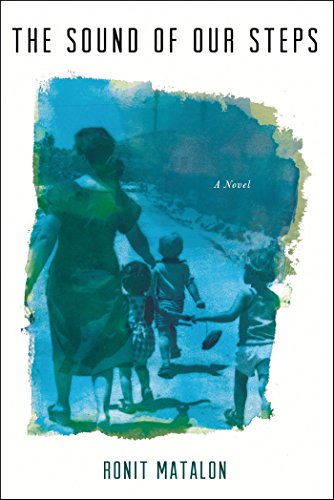The Sound of Our Steps
In the mid-20th century, Lucette, Maurice, Sammy and Corinne are Egyptian Jews living outside of Tel Aviv, immigrant outcasts physically, culturally and politically. Let the reader be warned: this description of the protagonists is the only linear one within this collection of memories, vignettes and reflections, with some stylistic appearances of surrealism or magical realism.
The story is narrated by “the child,” who is unidentified by specific name. Lucette is referred to as “the mother” and constantly strikes fear into the hearts of Nona, her mother, and her children. She is a hard-working survivor whose only rest comes when she reads two books over and over again, her preference being a very romantic La Dame aux Camellias. This also reveals Lucette’s own weakness and fragility. Unromantically, she kicks her husband Maurice out of their home because of his unreliable and uncaring lifestyle. However, he plays a large part in the family’s thinking about leftist politics and his endearing ways.
The chapters treat different topics, such as roses, reading, the Sinai War, the ethnic Mizrahi groups and so much more – all told from different points of view and randomly arranged. A study of Israeli life for immigrant Jews and familia, this novel reveals all the characters revolving around the mother (and perhaps Israel itself): “Each of us in his own way was riveted by her… anticipating her, but more accurately anticipating her changing from one thing to another. These transformations of hers, the contradictions reversing themselves from one minute to the next, defined us and then defined us again.” A literary masterpiece of historical fiction, The Sound of Our Steps won the prestigious Bernstein Prize and, in its French-language edition, the Prix Alberto-Bienveniste for 2013.










